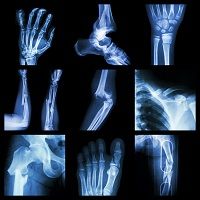Breaking a Bone Could Mean Chronic Widespread Body Pain Down the Line
“What causes chronic pain?†may be one of the most daunting health questions frustrating patients and health care providers alike. A new study uncovered a strong correlation between patients with chronic pain who also have history of breaking a major bone.

“What causes chronic pain?” may be one of the most daunting health questions frustrating patients and health care providers alike. A new study uncovered a strong correlation between patients with chronic pain who also have history of breaking a major bone.
Researchers from the Medical Research Council Lifecourse Epidemiology Unit (MRC LEU) at the University of Southampton suspect that one trauma in the form of a broken bone could mean chronic pain in the long run.
“Past studies have demonstrated an increased risk of chronic widespread pain following traumatic events, but none have directly linked to skeletal fractures,” lead researcher Nicholas Harvey, PhD, said in a news release.
- The MD Magazine Chronic Pain condition center
The research looked at 501,733 participants with ages 40 to 69 collected from the UK Biobank cohort. In addition to evaluating bone fracture history, the team took diet, lifestyle, body build, and psychological health into consideration as well.
What they found was that 23,177 of the participants had history of a fracture on an upper limb, lower limb, spine, and/or hip; 7130 of them had chronic widespread bodily pain. Those with a prior fracture were significantly more likely to also be one of the patients with chronic widespread bodily pain, according to the results in Archives of Osteoporosis. For men, the likelihood for pain was more than doubled when they had a spine fracture in their history. The same could be said for women with prior hip fractures.
“The causes of chronic widespread pain are poorly characterized, and this study is the first to demonstrate an association with past fracture,” explained Harvey, professor of rheumatology and clinical epidemiology at the University of Southampton.
These findings indicate that musculoskeletal components play an important role in chronic pain just like genetics do.
“If confirmed in further studies, these findings might help us to reduce the burden of chronic pain following such fractures,” Harvey concluded.
What to Read Next >>> Most Physicians Still Prescribe Opioids After an Overdose